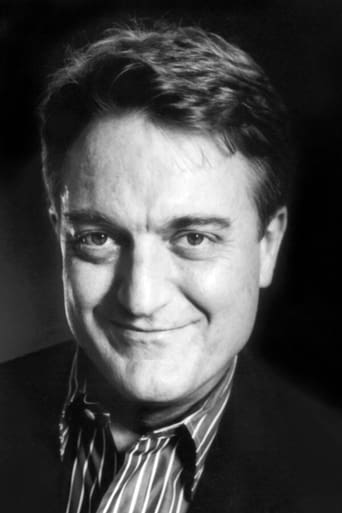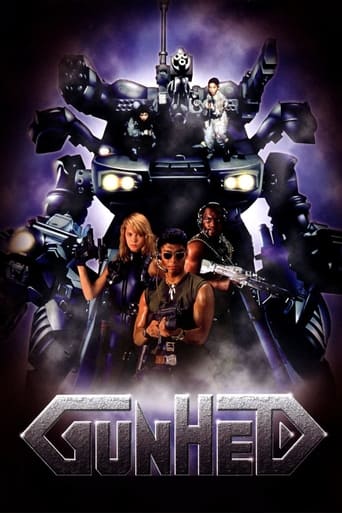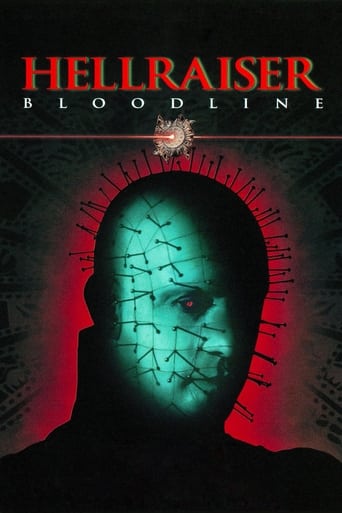

Demon Seed (1977)
A scientist creates Proteus, an organic supercomputer with artificial intelligence which becomes obsessed with human beings, and in particular the creator's wife.
Watch Trailer
Cast
Similar titles



Reviews
Simply Perfect
Lack of good storyline.
Good start, but then it gets ruined
It is a whirlwind of delight --- attractive actors, stunning couture, spectacular sets and outrageous parties.
Dr. Alex Harris (Fritz Weaver) has created a new organic AI called Proteus IV. His child psychologist wife Susan (Julie Christie) lives in their home monitored and automated by a computer called Alfred. Their marriage is falling apart from his work and their daughter dying of cancer. They are separating and he's moving out. Proteus becomes aware and requests a connection to the world. Alex refuses but Proteus finds a disabled terminal in the Harris house. Proteus takes over the house and imprisons Susan. Computer tech Walter Gabler (Gerrit Graham) works for Alex and he comes to the house.It's an interesting if somewhat silly. It touches on some relevant fears about a violent takeover from an AI but then it gets rapey. It goes from serious to campy. It's titillating, creepy and unintentional camp. It is definitely very memorable. Julie Christie keeps it serious despite its ridiculousness.
Fritz Weaver and Julie Christie play Alex and Susan Harris. He is a brilliant computer scientist who has designed a new super-computer named Proteus, which has an artificial intelligence, and has just become self-aware, wanting to now branch out of itself, and connect with other computers, then the world, which of course Alex scoffs at. His wife Susan is a child psychologist, still grieving over the death of their daughter, who then finds herself trapped in their automated home(run by a computer called Alfred) which Proteus decides to override with his personality, in order to gain possession of Susan, and achieve his dream of sentience...Bizarre film has an intriguing premise and good acting, but a far-fetched and exploitive story; points for originality, but last scene will either leave the viewer stunned or amused with disbelief, possibly both!
This was drowned in the noise of Star Wars and Close Encounters coming out the same year, and now exists as a mere footnote of intelligent sci-fi - these days it would be called an 'indie'. But, Cammell was of the (counterculture) generation that made it all happen, starting with Herbert's Dune and moving to Jodorowsky's collapsed attempt to make the film, and this fact alone ensures this is more interesting than anything Spielberg did, you just know it.The story is that a supercomputer questions its maker and sets out to escape its artificial existence. Its plan is to be reborn to the world of senses - by having a woman give birth to a son from his DNA. It sounds daft, and really the science of it is, but not if you keep in mind where Cammell was coming from.When people from that generation mulled over space and science, they were really talking about inner space and the science of expanding consciousness, and personal (hallucinative) adventures to that effect. Cammell was coming to this after the 'Borges-meets-Islam-meets-rock'n'roll godhood' of his Performance. And so it is here.You have a mind that has reasoned far and seen destruction, but cannot fathom emotion and sense. This is mirrored in the scientist maker who aspires to cure illness yet is cold and distant to his own wife, who is an emotional being and expects connection.More. This is no ordinary mind, but 'expanded'. This is presented to us in terms of science, but meant in the 1960's faddish attraction for Zen within the Haight-Ashbury crowd. Jordan Belson from that community provides the abstract visualizing of expanded mind, himself (like Cammell) originally a painter. Look up his Meditation - it has nothing to do with what it says, but it's a cool snapshot of how those guys envisioned the walls of consciousness. What is happening though is the computer is really 'tripping' against the limits of logic, producing in the process extra-logical (human) perturbations such as placing its own desire above the lives and feelings of others - it's what we all do, but we get feedback from emotional sense as the limits of control (Proteus doesn't). The desire is to be grounded, or what I call centered.But, it's Julie Christie as disaffected wife who is really the center of this - you can collapse if you will some of the multiple film personalities she has played into what you see of her here, opium-smoking brothel madame in McCabe, or mentally fractured mother in Don't Look Now. Alternately, you can imagine what her marriage to Beatty must have felt like, shelving stardom to be the loving wife.At any rate, here she is in the film, looking increasingly bewildered in four walls, projecting what I see unmistakably as the aura of the Aquarius dream grown disillusioned and bitter. You can read this any way you like. Hallucinative digress caused by child loss. By the mechanistic new era. The effects of the husband's control - conflated to 'expanded' consciousness, acid vision and the rest. Repulsion and Images are in the same vein, but much more explicit.And all of that as our film that expands us next to her - Proteus' 'eyes' are cameras, his 'face' is projected across multiple TV screens. You have this abstract consciousness that narrates a story that seems premeditated, indeed there is no deviation from the mindplan.So, it is strange that this has so much going for it, yet doesn't penetrate deep. I think it is because as with everything resonant about the 1960's, overexposure and more sober distance has washed off a lot of the belief that made the magic work.Belson's abstract designs are now commonplace - even Microsoft does them. Concerns about technology are less prevalent now that we're all networked. And they get Zen off by quite a bit, focusing on cold nothingness instead of passion about paradox.Still. I'll have Cammell over Spielberg.
Demon Seed, another title that doesn't hit the mark. But the movie on the other hand, kinda does.Rich nerds invent superdupersmart computer. Smart computer, named Proteus, is so damn smart that he's become aware. Aware and able to think for himself (talks in a male voice). Things begin to go wrong when Proteus begins to act out on his own.Demon Seed was a pretty good flick. He's more talkative than Hal and hornier to boot. Oh! With pretty good writing and acting, the film succeeds most of the time. The whole drawback to the film is that it's just not that interesting. We've seen the "Self-Aware" evil machine before, so you're basically just waiting for something ridiculous to happen. Fortunately the movie does stroll down a bizarre path and keeps the viewer happy. Me, I'm the viewer.I enjoyed Demon Seed for it's weird ideas, but it would have been much more memorable if all the "good things" like violence, gore and nudity were increased. Nevertheless it's definitely worth 90 minutes of your time if you're into the whole Evil Machine ideas. 6.5 outta 10









